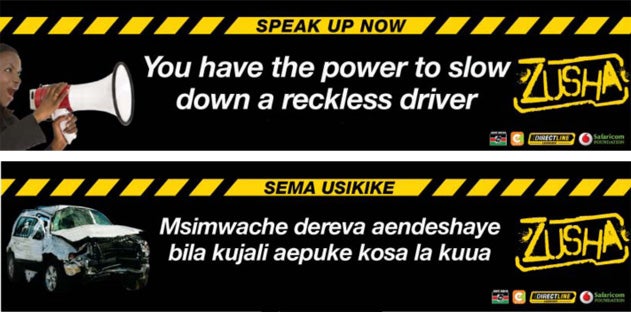Title: East Africa Road Safety Project Gets $3 Million Grant
The United States Agency for International Development (USAID) awards Georgetown professors Billy Jack and James Habyarimana a $3 million grant to expand their road safety intervention project.

NOVEMBER 12, 2014THE UNITED STATES AGENCYfor International Development (USAID) has awarded Georgetown researchers a $3 million grant to expand a road safety intervention project in East Africa, where traffic accidents are a leading cause of death.
The grant goes to Billy Jack, director of undergraduate studies in the economics department, and James Habyarimana, associate professor at the McCourt School of Public Policy, who co-founded and co-direct theGeorgetown University Initiative on Innovation, Development and Evaluation, or gui2de.
“We are extremely grateful to our partners at USAID for their continued support of our research,” said Habyarimana. “We hope this inexpensive and effective intervention has a continued significant impact on road safety in East Africa.”
The grant from USAID’s Development Innovation Ventures (DIV) supports the third phase of the Zusha! study in Kenya, and expands the project to three other countries – Tanzania, Uganda and Rwanda.
DANGEROUS BUSES
Zusha! represents the first time a project funded by DIV has successfully transitioned from being a pilot program to reaching millions of people. DIV is an open competition supporting breakthrough solutions to the world’s most intractable development challenges.
In sub-Saharan Africa, traffic accidents are the leading cause of death for children and young adults 15 to 29 and the second leading cause of death for children 5 to 14.
Many of these deaths occur in minibuses or matatus, the primary mode of transportation in the region. The accidents cost the local economy billions of dollars a year.
DECREASED ACCIDENTS
In the initial research phase, Jack and Habyarimana placed stickers in a random sample of more than 1,000 minibuses in Kenya, and encouraged passengers to speak up when their bus drivers were driving recklessly.
Using insurance claim data, the researchers discovered a 50 percent drop in total accidents and a 60 percent drop in accidents with injuries or fatalities after the intervention.
The results of their work, published in the working paperHeckle and Chide, earned the researchers additional support from DIV.
THE NEXT PHASE
This grant will allow us to reach every public service bus passenger in Kenya. Working with our local partners and stakeholders, we will motivate passengers to speak up when their safety is compromised.”
—Billy Jack, DEPARTMENT OF ECONOMICS DIRECTOR OF UNDERGRADUATE STUDIES
The latest DIV grant will support a scaling up of the intervention across Kenya, and evaluation and implementation of the intervention in the other three countries.
“This grant will allow us to reach every public service bus passenger in Kenya,” Jack said. “Working with our local partners and stakeholders, we will motivate passengers to speak up when their safety is compromised.”
In partnership with local project implementer Digital Divide Data, the third phase of Zusha! includes placing additional stickers in the minibuses, coordinating an advertising campaign to complement the project and holding stakeholder meetings to raise and sustain awareness of the campaign.
FIELD-BASED RESEARCH
Gui2de conducts empirical field-based research to assess the impact and effectiveness of interventions and policies aimed at empowering individuals in developing countries and improving their lives.
Its researchers are currently working on projects in East and West Africa, Latin America, India and the Middle East.
This spring, gui2de will offer a one-credit Development Incubator course to engage students in empirical research and innovation in development economics and impact evaluation.
Students in the course will learn about experimental methods of impact evaluation, project management, survey design and implementation, and data analysis.